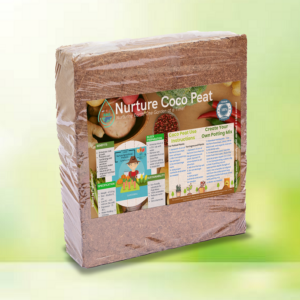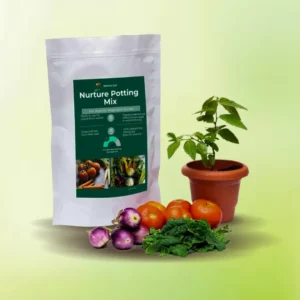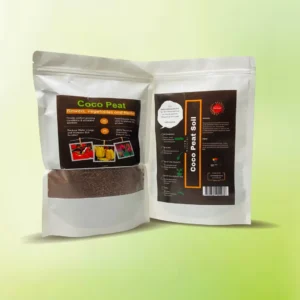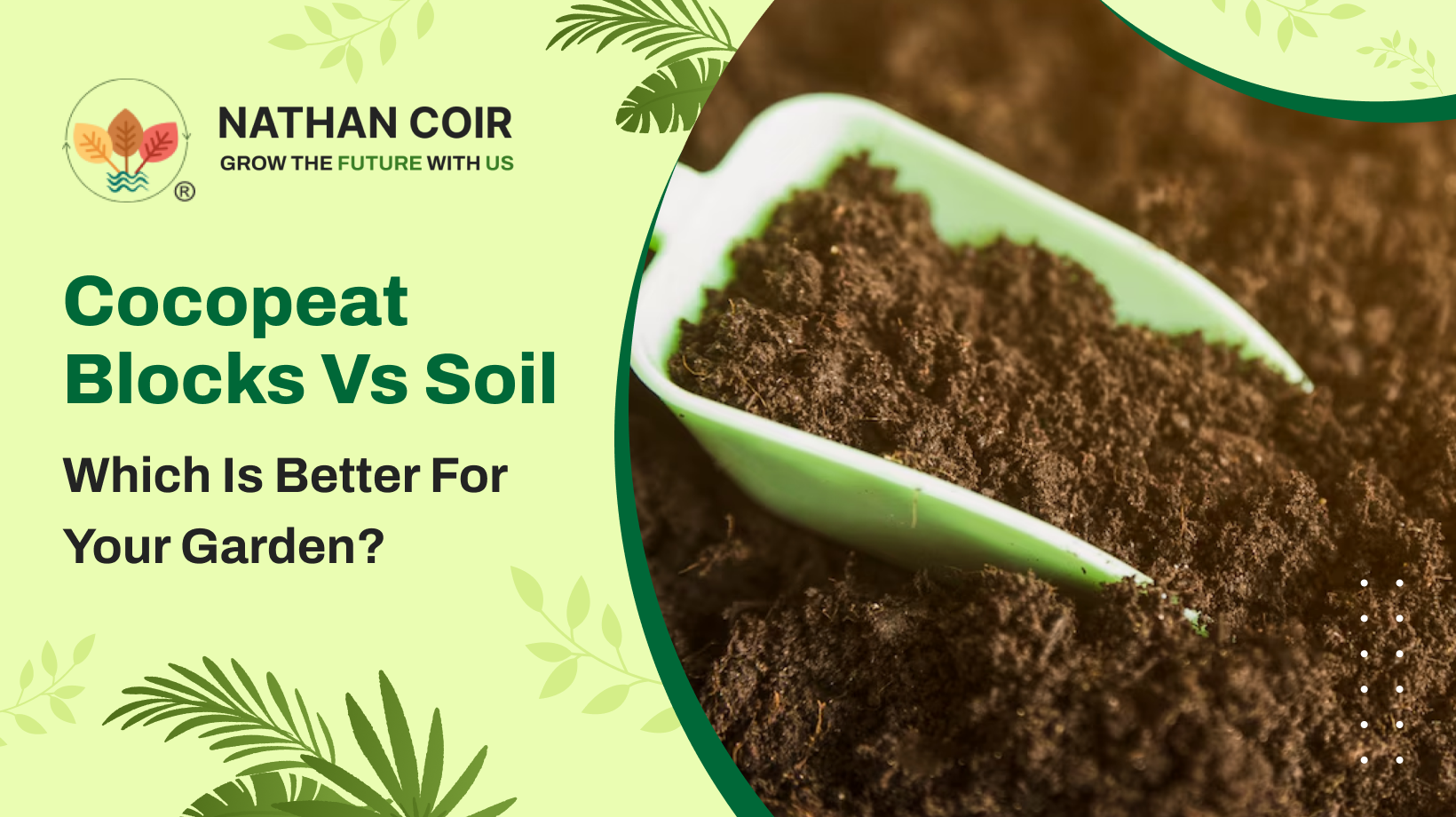Introduction
Gardening success depends on choosing the right growing medium. Whether you are a home gardener or a commercial grower, selecting between cocopeat blocks and soil can make a significant difference in plant health. Both have unique characteristics, but which one is best for your garden? Let’s explore their benefits, uses, and differences to help you make an informed choice.
This article will compare cocopeat blocks vs cocopeat soil, highlight their benefits, and guide you on when to use each for optimal plant growth.
What is a Cocopeat Block?
Cocopeat blocks are compressed, dry forms of cocopeat, a natural byproduct derived from coconut husks. When water is added, these blocks expand into a lightweight, spongy growing medium ideal for various gardening applications.
Key Features of Cocopeat Blocks:
- Highly absorbent and retains moisture for longer periods.
- Free from harmful chemicals and pesticides.
- Lightweight and easy to transport.
- pH neutral, making it suitable for most plants.
- Helps improve soil aeration and root development.
Cocopeat blocks are commonly used in hydroponics, seed germination, and potting mixes due to their ability to retain moisture while allowing proper air circulation.
What is Cocopeat Soil?
Cocopeat soil refers to a pre-mixed growing medium that contains cocopeat combined with other organic materials such as compost, perlite, or vermicompost. This mixture enhances soil structure and provides better water-holding capacity than traditional garden soil.
Key Features of Cocopeat Soil:
- A balanced mix that retains nutrients essential for plant growth.
- Ideal for potted plants, raised beds, and greenhouse cultivation.
- Improves drainage and prevents waterlogging.
- Enhances microbial activity for healthy soil.
- Reduces the need for frequent watering and fertilizers.
Many gardeners prefer cocopeat soil over regular soil as it provides a sustainable, long-lasting alternative that supports plant health.
Cocopeat Blocks vs Soil: Key Comparisons
1. Water Retention & Drainage
- Cocopeat Blocks: Hold up to 10 times their weight in water, ensuring consistent moisture.
- Soil: May become compacted over time, leading to poor drainage.
2. Nutrient Content
- Cocopeat Blocks: Contain minimal nutrients and require additional fertilizers.
- Soil: Naturally rich in minerals but may need amendments based on plant requirements.
3. Eco-Friendliness & Sustainability
- Cocopeat Blocks: 100% organic, biodegradable, and sourced from coconut husks, making them a sustainable alternative.
- Soil: Overuse can lead to soil erosion and depletion of natural resources.
4. Pest & Disease Resistance
- Cocopeat Blocks: Naturally resistant to fungi and pests, reducing the risk of soil-borne diseases.
- Soil: May harbor harmful bacteria, pests, and weeds.
5. Ease of Use & Maintenance
- Cocopeat Blocks: Lightweight, easy to store, and expands when hydrated.
- Soil: Heavier and requires regular maintenance to retain fertility.
Benefits of Using Cocopeat in Gardening
Gardening with blocks of cocopeat compared to cocopeat soil is more beneficial for many gardening lovers which includes:
- Enhances Aeration: Makes the soil loose and fluffy, cutting back on compaction and allowing roots to expand.
- Fewer Watering Chores: Slows down water evaporation, eliminating the need for water every day.
- Encourages Beneficial Bacteria Population: Foster helpful bacteria that enhance the health of the plants.
- Cut Down on Fertilizer and Nutrient Runoff: Helps contain the fertilizers and nutrients longer, preventing them from being washed away.
- Less Harmful To The Environment: Made from renewable resources eco friendly.
Looking for an affordable option? Explore the coco peat soil price to get the best deals on premium-quality cocopeat.
When Should You Use Cocopeat Block and Soil Together?
When Cococopeat Blocks are Preferred: When planting seeds and supporting seedlings. When creating hydroponics or soilless gardening systems. When combining other mediums and blocks to raise soil aeration.
Use Soil When:
- Growing plants that require a rich nutrient base, such as vegetables and fruits.
- Establishing outdoor garden beds and landscaping projects.
- Cultivating plants that need natural minerals from the soil.
- Creating compost mixtures for organic gardening.
- Many gardeners find that a combination of cocopeat and soil provides the best of both worlds, ensuring optimal moisture retention, aeration, and nutrient supply.
Nathan Coir Cocopeat has earned the trust of thousands for producing cocopeat blocks that aid in plant growth while simultaneously increasing the health of the soil.
Why Choose Nathan Coir Cocopeat?
- Cocopeat is safe for all plant types, including vegetables and herbs, so it is 100% organic and chemical-free.
- Cocopeat expands up to 5 times its original size, meaning one block can provide an abundant growing medium.
- Perfect pH balance ensures optimal root development, making it perfect for various plants.
Conclusion
Both cocopeat blocks and soil have their advantages, and the best choice depends on your gardening needs. Cocopeat blocks provide superior water retention, aeration, and sustainability, making them an excellent addition to any garden. However, traditional soil remains essential for nutrient-rich plant growth.
For the best results, many gardeners use a mix of cocopeat and soil to enhance their growing medium. If you’re looking for a high-quality, eco-friendly alternative, Nathan Coir Cocopeat 5kg Blocks are a perfect choice. Available at Meesho, Flipkart, and Amazon, these blocks offer the best value for your gardening needs.
Start using Nathan Coir Cocopeat today and experience the benefits of healthier, greener plants!




